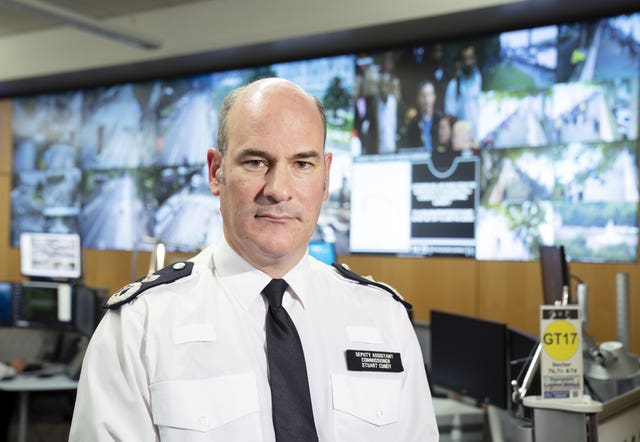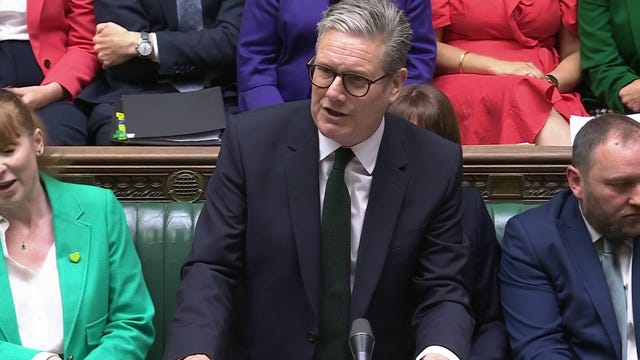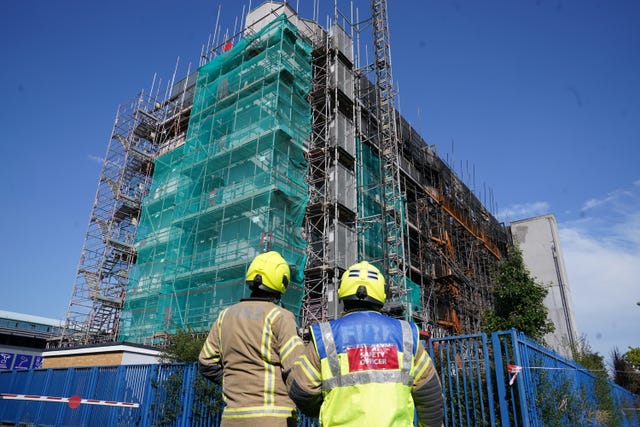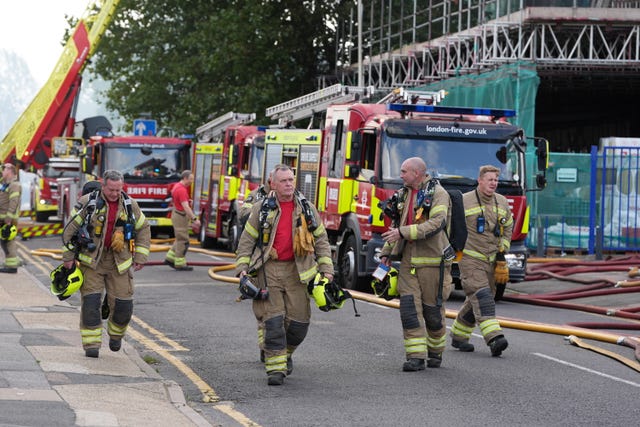Grenfell report: What happens next for the police and other authorities?
Prime Minister Sir Keir Starmer said his Government will look at all 58 of the inquiry’s recommendations ‘in detail’.

Bereaved and survivors have repeated their calls for charges to be brought over the Grenfell Tower disaster, after a scathing report laid out a litany of failings by authorities.
Here, the PA news agency considers what might happen next for some of the main organisations:
– Police

Detectives need another 12 to 18 months to complete their investigation into the disaster, before prosecutors will take until the end of 2026 to decide whether criminal charges can be brought.
Metropolitan Police Deputy Assistant Commissioner Stuart Cundy said that officers will go through the inquiry report “line by line”, but cannot use its findings as evidence because it comes under a different legal framework.
In May, the Met said a total of 19 companies and organisations were under investigation for potential criminal offences, along with 58 individuals.
Potential offences under consideration included corporate manslaughter, gross negligence manslaughter, perverting the course of justice, misconduct in public office, health and safety offences, fraud, and offences under the fire safety and building regulations.
At that stage eight out of 20 files had been sent to the CPS for early investigative advice, with a typical case file more than 500 pages long with 17,000 pages of evidence.
– Government

Prime Minister Sir Keir Starmer said his Government will look at all 58 of the inquiry’s recommendations “in detail”.
He promised the Government will respond “in full” to them within six months, and pledged to update Parliament annually on progress against each commitment made.
A recommendation from the inquiry’s phase one report in 2019 said owners and managers of high-rise residential buildings should be required to prepare personal emergency evacuation plans (Peeps) for residents unable to self-evacuate.
Following a consultation, the previous government said in 2022 that, despite widespread support for Peeps, there remained what it described as significant barriers to implementing them, on the grounds of proportionality, practicality, and safety.
In his statement to the Commons following the report’s publication, Sir Keir said his Government is “now addressing” this recommendation.
– Construction industry
The report concluded the construction industry has become “too complex and fragmented” – leading the inquiry chairman to recommend the Government draw together 12 functions of the industry under a single regulator.
It suggested the Government should bring all functions relating to fire safety into one department under a single secretary of state rather than multiple departments, and to appoint a chief construction adviser with sufficient budget and staff for all construction industry-related matters.
Sir Keir pledged to “reform the construction products industry that made this fatal cladding, so homes are made of safe materials”.
He said those who compromise safety “will face the consequences”.
The Grenfell report found “systematic dishonesty” from manufacturers who had been involved in “deliberate manipulation of the testing processes and calculated attempts to mislead purchasers”.
– Buildings still covered in dangerous cladding

Sir Keir acknowledged there are “still buildings today with unsafe cladding” and repeated a previous acknowledgment that “the speed at which this is being addressed is far, far too slow”.
He said this report, coming just over a week after a major fire in Dagenham at a building which had been having unsafe cladding removed, “must be a moment of change”.
He vowed his Government “will take the necessary steps to speed this up”, including forcing freeholders to assess their buildings and enter remediation schemes within set timetables, “with a legal requirement to force action if that is what it takes to tackle industry intransigence”.
Further steps on remediation are due to be set out in autumn, he added.
– Social housing
The Government said it will ensure tenants and their leaseholders “can never again be ignored”, and will hold to account social landlords over the decency and safety of their housing.
Sir Keir told the Commons: “Because a safe and decent home is a human right and a basic expectation.
“And the provision of that right, should never be undermined by the reckless pursuit of greed.”
– London Fire Brigade

The report suggested the Government establish a College of Fire and Rescue to provide various services nationally, including practical training, and advised that the fire and rescue services inspectorate inspect LFB “as soon as reasonably possible” to assess control room effectiveness and training of incident commanders.
LFB said it was now “better prepared” to respond to high-rise fires, having completed every recommendation from the phase one report.
But it said it would not be “complacent” and is “in dialogue” with the Government and Mayor of London around continued work to ensure buildings in the capital are safe.
The brigade pledged to set out an action plan, detailing its response to each recommendation “in due course”.





